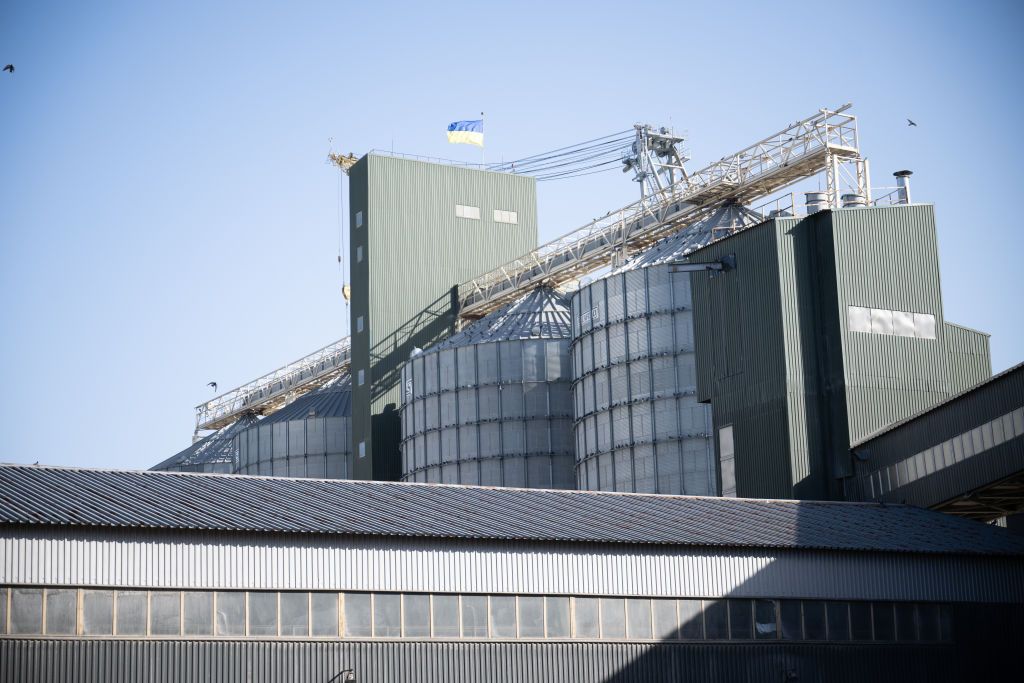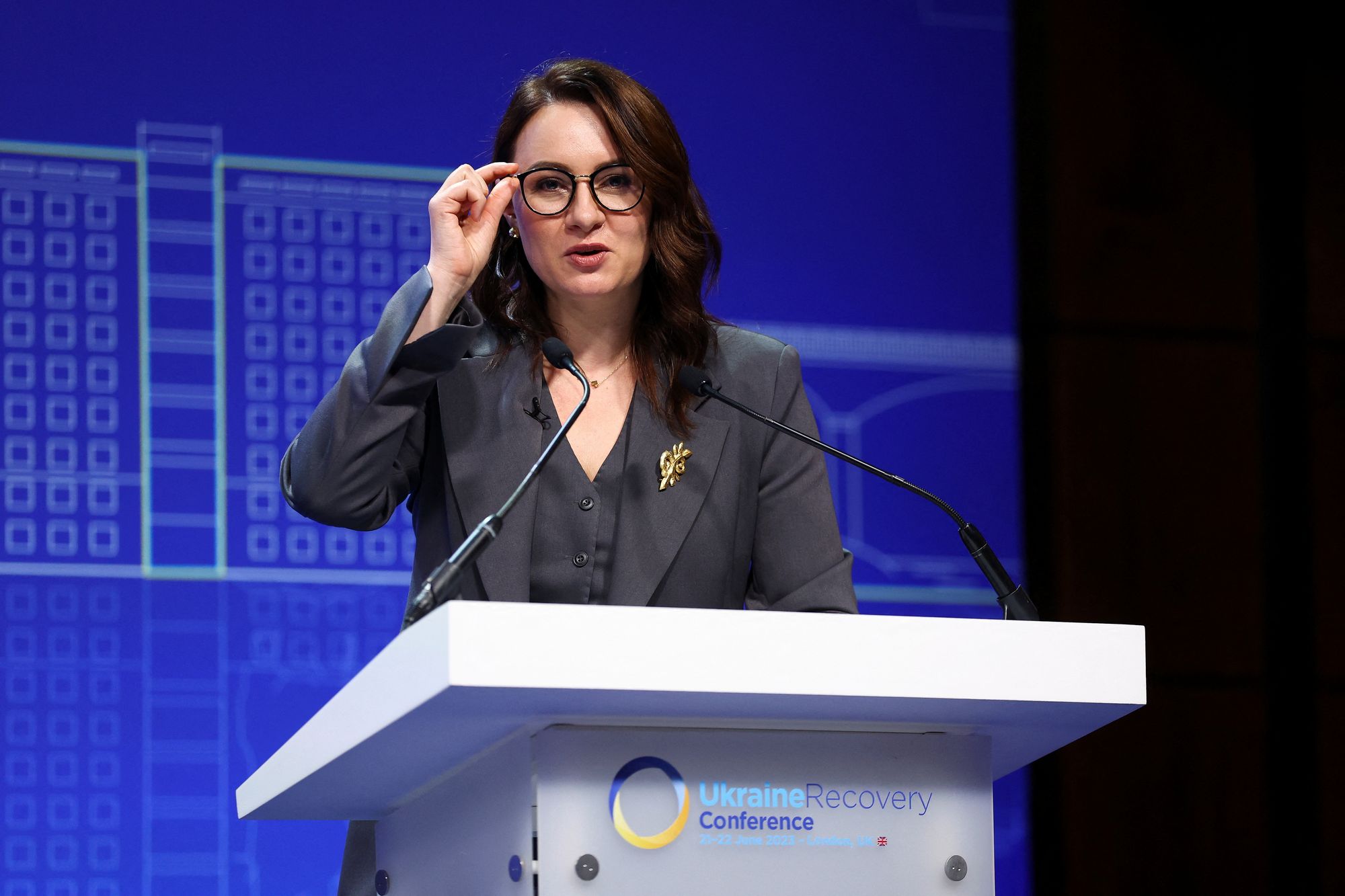Zelensky asks Davos forum to invest in Ukraine's peace

President Volodymyr Zelensky asked the world's business and political leaders at the Davos forum on Jan. 16 for resolve in supporting Ukraine, stressing that this is the only quick way toward just and stable peace.
As international support for Kyiv softens, Zelensky arrived in Switzerland to reinvigorate confidence among allies and partners.
"I appreciate your willingness to hear answers to really important questions. When will the war end? Is the third world war possible? Is it time to negotiate with Putin?" Zelensky opened his address to the forum.
Ukraine's head of state stressed that previous worries about escalation into a larger-scale war, which delayed resolute actions against Russia or vital military supplies for Ukraine, have proven void.
"Time was lost because of calls not to provoke escalation. Many of our most experienced warriors who have been fighting since 2014 have lost their lives," the president stressed.
"Every 'don't escalate' addressed to us sounded like 'you will win' to (Vladimir) Putin. We asked for new types of weapons, and in response, we heard: 'don't escalate.' But then the weapons arrived, and there was no escalation."
Zelensky emphasized that Russia's aggression poses a threat not only to Ukraine but to the wider world, as evidenced by Moscow's actions in Syria and Africa. He also noted that all efforts to negotiate peace with Putin have failed, as the Kremlin's leader himself seeks war.
"In any violent confrontation, there is always a moment when the catastrophe can be stopped. Ukraine is such an opportunity," Zelensky said in his speech.
"And all of us in the free world must be steadfast in our aspirations, actions, and goals just as Putin is forthright in his doomed ambitions."
Zelensky's speech comes at a critical time, as over $100 billion in EU and U.S. funds remain stalled by political infighting.
At the sidelines of the forum, Zelensky met a number of senior political leaders, including European Commission President Ursula von der Leyen, NATO Secretary General Jens Stoltenberg, and U.S. Secretary of State to discuss future support.
Washington, Ukraine's leading military donor, warned that it had delivered its final military aid package to Kyiv unless Congress approves additional funding. The aid bill has yet to pass either chamber of the U.S. legislature as political disputes between the Republican and Democratic parties persist.
Talks with von der Leyen also came at an important moment. Zelensky said that the two leaders agreed to start screening Ukrainian legislation in preparation for the accession process, as the EU recently greenlighted admission negotations with Kyiv.
One unresolved issue remains the 50-billion-euro funding package for Ukraine, which is currently stalled by Hungary. The bloc's leaders are expected to reconvene on the matter on Feb. 1.
During his address, the president further said that now is the time to invest in just and stable peace.
"Every reduction in pressure on the aggressor adds years to the war. But every investment in the defender's confidence shortens the war."
The president's visit to Davos was also an opportunity to meet face-to-face CEOs of the world's business and financial giants.
Prior to his address, Zelensky attended meetings with international business leaders, seeking to increase investment in Ukraine's reconstruction and industry.
"We need you in Ukraine to build, to reconstruct, to restore our lives," Zelensky told investors.
"Each of you can be even more successful with Ukraine."
Kyiv sorely needs a financial boost as its infrastructure and economy continue to suffer under Russian aggression while Western funding simmers down.
The World Bank estimated that the total recovery cost for the coming years may amount to over $400 billion. One proposed way to collect these funds without burdening Ukraine's or its allies' budgets is confiscating Russian assets frozen on Western accounts.
Speaking at the forum, Zelensky called for a "strong decision" this year, which would allow Russian state and oligarchic assets to fund Ukraine's defense and reconstruction.
"Putin loves money above all else. The more billions he, his oligarchs, friends, and accomplices lose, the more he will regret starting this war."
The U.S., with the support of the U.K., Japan, and Canada, are reportedly preparing viable options for confiscating Russian assets, which should be discussed during a G7 meeting in February.
Germany, France, Italy, and the EU expressed some reservations, fearing potential legal pitfalls, the Financial Times wrote.
U.S. Special Representative for Economic Recovery in Ukraine Penny Pritzker said during the forum on Jan. 15 that any decision on confiscation must be collective action and is unlikely to be taken quickly.
In his closing words in the address, Zelensky asked the forum's attendees to take part in building a just peace in Ukraine and invited them to the upcoming Global Peace Summit, which Switzerland agreed to host.
A day prior to the World Economic Forum, Davos hosted an advisory meeting on Ukraine's peace formula, a fourth such gathering in preparation for the summit.
"Today, our teams have already started work on organizing such a summit. Not the Third World War, but the Global Peace Summit."












